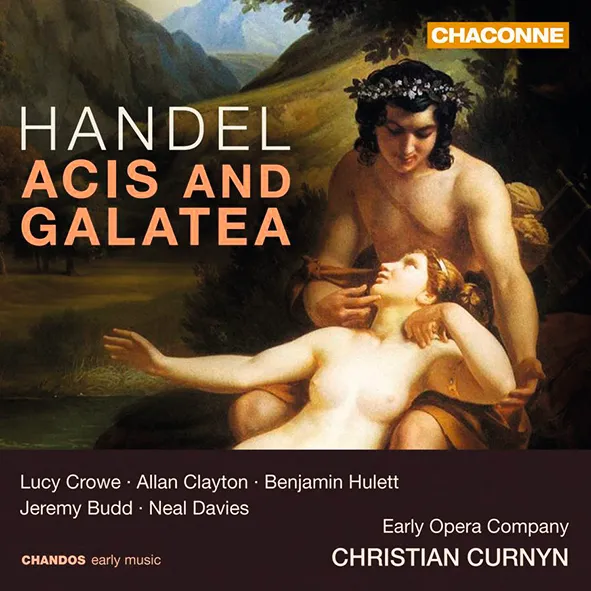
Handel Acis and Galatea Lucy Crowe (soprano), Allan Clayton, Benjamin Hulett, Jeremy Budd (tenor), Neal Davies (bass-baritone); Early Opera Company/Christian Curnyn Chaconne CHSA 0404 (hybrid CD/SACD) 86:48 mins (2 discs)
Christian Curnyn brings us the best Acis and Galatea – ever! In the past, critics have named William Christie’s 2012 recording ‘the best’, but this performance leaves Christie in the dust. Curnyn has hit on a secret that eluded previous interpreters of this work: it was conceived specifically to showcase the beauty of the English language. With the spur of a wordbook written expressly for him, Handel put every aspect of his craft, from counterpoint to slurring, at the service of English verse. Channelling Handel’s enthusiasm, Curnyn and his fellow artists forge a musical rhetoric powered by native sonorities.
The story comes from Ovid’s Metamorphoses. It tells of the cyclops Polyphemus, who, failing to woo the nymph Galatea from her shepherd-lover Acis, crushes Acis with a heavy stone. Told in English, the words form striking pictures: Acis swooning over Galatea’s charms, the united couple’s skips of joy, and Polyphemus’s oafish love serenade and murderous blow.
Lucy Crowe as Galatea excels especially in turning words, and word-pictures, into sound: ‘billing’ and ‘cooing’, she’s as artless as the dove she imitates, leaping effortlessly and draping her repeats in the softest of ornaments. The way Allan Clayton, as Acis, strokes phrases like ‘Love on her breast sits panting’ is almost embarrassing. And Neal Davies’ Polyphemus is alternately comic and horrid, thanks to his stupid vehemence (‘O ruddier than the cherr-EE’), and the timbral heft with which he silences Acis in their final trio. Buzzing around the singers are obbligato woodwinds that echo, cut off or extend what the singers are expressing. This is, altogether, a benchmark that will be hard to beat.
Berta Joncus